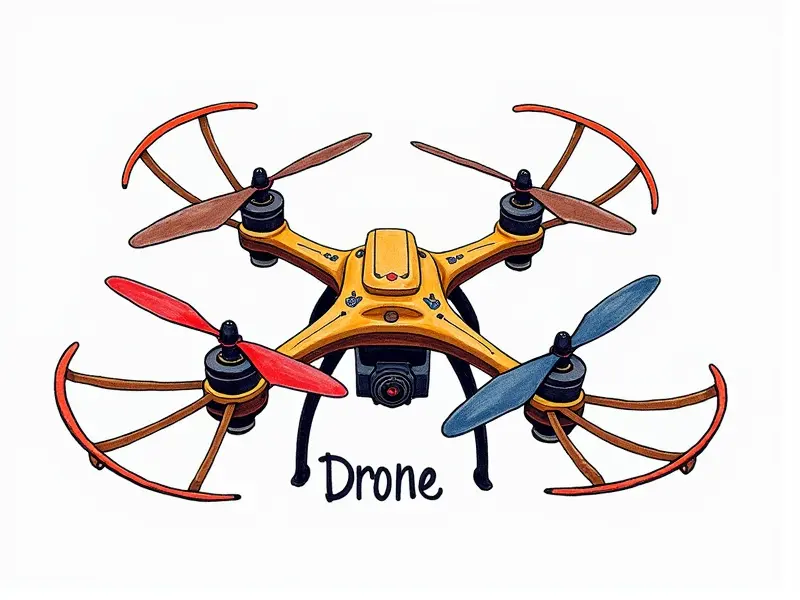Why does battery degrade?

Why Do RC Batteries Degrade Over Time?
The degradation of batteries in remote-controlled (RC) devices is a common issue that affects the performance and longevity of these devices. Understanding why this happens is crucial for enthusiasts who rely on their RC planes, quadcopters, and drones to maintain optimal operation. Battery degradation can be attributed to various factors, including environmental conditions, usage patterns, and inherent battery characteristics.
Understanding the Impact of Temperature on RC Batteries
Temperature plays a significant role in how quickly an RC battery degrades. Extreme heat or cold can significantly affect the internal chemistry of lithium polymer (LiPo) batteries, which are commonly used in RC models. High temperatures accelerate chemical reactions within the battery, leading to faster capacity loss and reduced performance. Conversely, extremely low temperatures can cause the electrolyte inside the battery to become less conductive, resulting in poor discharge rates and potential damage if not managed properly.
Maximizing Battery Performance: Tips for RC Plane Enthusiasts
To maximize the lifespan of your RC plane batteries, consider implementing these tips:
- Store Batteries at Optimal Temperatures: Keep LiPo batteries stored in a cool place, ideally between 10°C and 25°C (50°F to 77°F).
- Avoid Overcharging: Ensure your charger is set up correctly to prevent overcharging, which can cause irreversible damage.
- Balancing Batteries Regularly: Use a balancing charger to maintain even charge distribution across all cells in the battery pack.
Common Causes of Rapid Battery Decline in RC Devices
Rapid decline in battery performance can be caused by several factors, including:
- Poor Charging Practices: Inconsistent charging routines and failure to balance charge batteries properly.
- Physical Damage: Dents or punctures can affect the internal structure of a LiPo battery.
- Over-discharge: Operating an RC device until the battery is completely drained can lead to permanent damage.
Preventing Premature Battery Failure in RC Quadcopters
To prevent premature failure of batteries in quadcopters, follow these guidelines:
- Select High-Quality Batteries: Invest in reputable brands known for their durability and reliability.
- Maintain Proper Storage Conditions: Store batteries in a dry place with moderate temperature to prevent degradation.
- Limited Usage Intensity: Avoid pushing your quadcopter beyond its recommended performance limits, which can lead to excessive heat generation and premature failure.
Factors That Accelerate Battery Degradation in FPV Drones
FPV drones often experience accelerated battery degradation due to:
- Vibration: Continuous vibration from propellers can cause internal cell damage over time.
- Frequent High-Intensity Flights: Repeatedly flying at high speeds and performing aggressive maneuvers increases heat generation, speeding up battery degradation.
- Poor Quality Charging Equipment: Using substandard chargers can lead to inconsistent charging patterns and potential damage to the battery cells.
Extending the Lifespan of Your RC Airplane Batteries
To extend the lifespan of your RC airplane batteries, consider these strategies:
- Cycle Management: Limit the number of charge-discharge cycles to minimize stress on the battery.
- Proper Handling: Handle batteries with care to avoid physical damage that can compromise internal integrity.
- Regular Maintenance Checks: Periodically inspect your batteries for any signs of wear or damage and address issues promptly.
The Top Reasons for Battery Degradation in RC Models
The most common reasons for battery degradation in RC models include:
- Inadequate Charging Practices: Improper charging procedures can lead to overcharging or undercharging, both of which are detrimental to the battery's lifespan.
- Poor Quality Batteries: Inferior quality materials and manufacturing processes can result in batteries that degrade more quickly than those from reputable brands.
- Environmental Stressors: Exposure to extreme temperatures, humidity, and other environmental factors can accelerate the aging process of RC batteries.
Secrets to Slowing Down Battery Degradation in High-Performance Drones
To slow down battery degradation in high-performance drones, consider these secrets:
- Use Quality Components: Invest in high-quality batteries and chargers that are designed for the rigors of high-performance use.
- Cooling Systems: Implement cooling solutions to manage heat generation during intense flight operations.
- Frequent Monitoring: Regularly monitor battery health through built-in monitoring systems or external diagnostic tools.
Simple Steps to Extend RC Airplane Battery Life
Simplifying the process of extending RC airplane battery life involves these straightforward steps:
- Select Appropriate Batteries: Choose batteries that match your specific needs in terms of power and capacity.
- Charge at Optimal Levels: Always charge to recommended levels, never overcharging or undercharging the battery.
- Maintain Storage Conditions: Store batteries in a cool, dry place to preserve their condition during non-use periods.
Maintaining Optimal Performance of RC Aircraft Batteries
To maintain optimal performance of your RC aircraft batteries, adhere to the following best practices:
- Consistent Charging Routine: Establish a consistent charging routine that includes balancing charges and avoiding overcharging.
- Monitor Temperature: Keep track of battery temperature during use and storage to prevent overheating or freezing.
- Limited Usage Intensity: Limit the intensity of your flights to avoid excessive stress on the batteries.
Conclusion
Battery degradation is a multifaceted issue that affects RC enthusiasts across various types of devices. By understanding the factors that contribute to battery decline and implementing proactive measures, you can significantly extend the lifespan and performance of your batteries. Whether it's managing temperature extremes, adhering to proper charging practices, or selecting high-quality components, each step plays a crucial role in preserving your investment and ensuring optimal operation for years to come.

